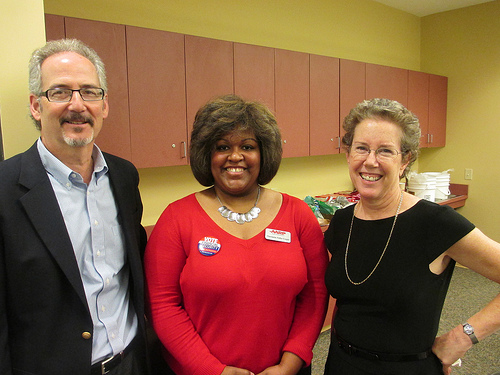AARP Hearing Center

Sweeping changes were made to North Carolina voting laws, many of which are already in effect. The North Carolina Center for Voter Education has information to help you understand the the state's voter ID and election overhaul.
Remember, you must register to vote by midnight on October 10. For an e-mail application click here
Free Voter ID
All North Carolina voters, or those registering to vote, who do not possess a valid photo ID outlined above may apply for a free ID from the DMV. Taking effect in 2016, all voters will be required to bring a valid photo ID to their voting site.
Early Voting Cut Off
The early voting period will be cut by an entire week, from 17 days to 10 days. Early voting will start on the second Thursday before Election Day, as opposed to the third Thursday as had been the law.
For elections beginning in 2014, county boards of elections must offer the same total number of hours that were offered in 2010 for future midterm elections and the same number of hours that were offered in 2012 for future presidential elections.
Same-Day Registration Eliminated
North Carolina voters will no longer be able to register and vote during the early voting period. All voters who wish to vote must be registered at least 25 days before an election. Registered voters can still use early voting sites to update their name and/or address.
Voter Pre-Registration Ended
Pre-registration for 16- and 17-year-olds will no longer be available. The program being eliminated allowed these teenagers to “pre-register” and then be automatically added to the voter rolls upon their 18th birthday.
Absentee Voting Changes
Citizens who vote absentee will need to fill out an official board of elections request form that must include the voter’s name and address, date of birth, an ID number (either a driver’s license number or last four digits of the voter’s social security number) and the voter’s signature (or the signature of voter’s near relative or verifiable legal guardian). Once the application form is received, the county board of elections will mail the voter a ballot.
The voter then completes the ballot and mails it back in the envelope provided. The envelope must be signed by two witnesses or one notary public. The voter can also choose to return the ballot by delivering it to an election official at an early voting site during any time that site is open for voting.
End Straight-Ticket Voting
Voters will no longer be able to vote straight-ticket, meaning they must mark the ballot for their preferred candidate in each race they choose to vote in.
End Out-of-Precinct Voting
Provisional ballots will no longer be counted if they are cast by a voter outside of their home precinct. Voters must cast their vote in their assigned precinct on Election Day.
Voters with no valid ID would cast a provisional ballot. But to have it count they would have to go to the elections board within six days (or nine days in presidential elections) and show a valid ID. (Voters without IDs could get them for free at DMV offices.)
End “Citizens Awareness Month”
The state will no longer have an annual “Citizens Awareness Month” designed to register voters and engage them in the electoral process.
More Poll Observers
In addition to the current two observers allowed at each polling place designated by the chairs of county political parties, the new law allows county chairs to designate 10 additional at-large poll observers. The at-large observers must be residents of that county and would be able to attend any polling place in that county.
Voting Challenges
On the day of a primary or election, any other registered voter of the same county may challenge that person’s vote. Under the old law, the person making the challenge had to be a registered voter of the same precinct.
Order of Parties on the Ballot
The new law changes the order in which candidates appear on the ballot. Candidates will now appear in order beginning with the candidates from the sitting governor’s party, then alphabetical by party.
Paper Ballots
The new law mandates that all voting machines must produce a paper record of the votes cast and provide a backup means of counting the vote that a voter casts. This will essentially ban touch-screen voting machines used by many counties in the state.
Extending Polling Place Hours on Election Day
Removes authority from the county board of elections to keep polls open an hour longer in extraordinary circumstances. The power to make that decision is now with the State Board of Elections. However, the law retains the provision that any voter who is in line to vote at the time the polls close will be permitted to vote.
Voter Registration Changes
When conducting voter registration drives, you can no longer compensate someone based on the number of voter registration forms submitted. When registering to vote, electronically captured signatures, including signatures on applications generated by computer programs of third-party groups, will not be valid.
Improve Voter Rolls
North Carolina can work with other states to exchange information and cross-check data on voter registration and voting records to determine if a voter is registered in more than one state.
The new law also makes it easier to removed deceased voters from the voter rolls. (Effective October 1, 2013.)
Satellite Polling Places for Voters with Disabilities
The new law standardizes the process by which a county Board of Elections can approve a satellite polling place other than the regular voting place for a particular precinct to accommodate the elderly and voters with disabilities.































































